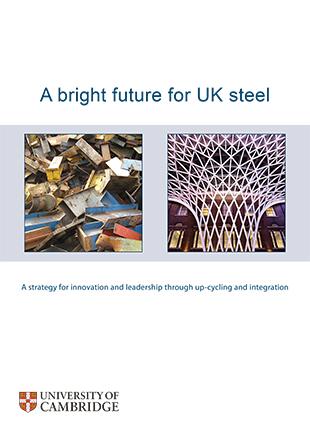Tata Steel is pulling out of the UK, and for good reasons, and there are few if any willing buyers. Despite the sale of the Scunthorpe plant announced earlier this week, the UK steel industry is in grave jeopardy, and it appears that UK taxpayers must either subsidise a purchase, or accept closure and job losses.
We believe that there is however a third option, which would allow a transformation of the UK’s steel industry, based on two innovations.
First, the global market for steel recycling is projected to grow at least three-fold in the next 30 years, but the processes of recycling have lacked innovation. Presently, old steel is generally ‘down-cycled’ to the lowest value steel application – reinforcing bar. Instead, UK strengths in materials innovation could be applied to instead ‘up-cycle’ old steel to today’s high-tech compositions.
Second, the UK steel industry makes interchangeable intermediate products such as plates, bars and coils of strip, all of which have low profit margins. Much more value is added to steel by businesses that convert these stock products into the tailored components that the final customer wants. New integrated business models could connect liquid steel production to the UK’s world-leading skills in architecture and construction, aerospace, automotive and other sectors, to find new value and innovation.
Our newly-released report, Up-cycling and integration: a strategy for innovation and leadership in a transformed UK steel industry, uses evidence gathered from over six years of applied research by 15 researchers, funded by the UK’s Engineering and Physical Sciences Research Council (EPSRC) and industrial partners spanning the global steel supply chain, to set out the case for this strategy and propose an action plan.

